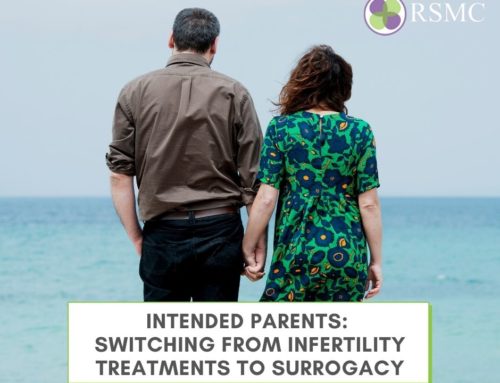Modern Assisted Reproductive Technologies (ART) have made it possible for LGBTQ couples to build a family together. LGBTQ families have unique needs, but like many prospective parents, have questions. What is possible? What’s involved? What can we expect? It’s natural to have these questions and concerns. Family planning can be difficult, however we are here to help make the journey easier.
What are the fertility options for lesbian couples?
- Intrauterine Insemination (IUI): IUI, sometimes referred to as artificial insemination, is the simplest option. Donor sperm is used in both cases, but in artificial insemination sperm is placed into a woman’s reproductive tract, regardless of exact location or method. IUI is a precise procedure, where the sperm is treated to create a concentrated sample of the healthiest sperm, which are then placed directly into uterus through the cervix. This procedure is timed with a woman’s natural ovulation cycle for optimal results.
- Reciprocal IVF: One of the main reasons lesbian couples chose reciprocal IVF is it allows both partners to contribute and collaborate in the creation of their child. Reciprocal IVF, also known as egg sharing, allows one partner to donate their eggs while the other carries the pregnancy. Each couple’s fertility needs are different and will determine how they use IVF to achieve pregnancy.
What are the fertility options for gay couples?
- Traditional Surrogacy: The chosen sperm fertilizes the surrogate’s egg through artificial insemination/IUI. Sperm used for this procedure can be from anyone of the partners or even a donor may be used.
- IVF, Egg donation and gestational surrogate: Multiple IVF treatments are available for gay couples, and are outlined below:
- The surrogate can use their own egg and sperm from one of the partners
- Using the surrogate’s egg and donor sperm
- Using donor eggs and sperm from one of the partners
- Use donor eggs and donor sperm
When using donor eggs, the surrogate will have no genetic relation to the baby.
How do we get donor sperm?
For lesbian couples, surrogacy requires a sperm donor for IVF. Choosing a sperm donor can be a very personal process. You can choose from the following two paths.
- Anonymous Donor: This option lets you choose a donor from a sperm bank. The bank will provide profiles with background information of the donor, and all samples will be pre-screened
- Known Donor: Women can decide to use the sperm of an identified donor, they can be a friend or a relative. In this case, the donor will be required to submit a sample to the clinic for analysis to ensure that the sperm is healthy and fit for using in fertility treatments.
How should you choose which partner carries the baby?
For some lesbian couples it is difficult to come to a decision, since both may want to carry the baby. You will have many conversations, but here are some considerations that can help you make the correct choice:
- Medically Fit: The reproductive health of the partner who will be carrying the pregnancy is very important. Healthy ovaries and eggs, if she decides to use her own, will give you the best chance of success.
- Healthy Lifestyle: You and your partner should consider each other’s overall health and fitness. Obese or underweight women have a lower chance of success. Also, smoking and other toxic habits can have adverse effects on pregnancy.
What are the surrogacy options for gay couples?
Surrogacy for gay couples has revolutionized over the last few decades. There are two paths for choosing a surrogate to carry your child.
- Surrogate is the source of both egg and uterus to carry the pregnancy. She can get pregnant through Intrauterine Insemination.
- Surrogate and egg donor are different. IVF is used in this case.
How to we get donor eggs?
This is a recurrent question on almost every gay couple’s mind. You can get egg donors in one of two ways:
- Anonymous Donor: It is important to choose a reputable fertility agency for this, that’s because a LGBTQ fertility specialist will point you in the right direction. Many donors have already been prescreened and will have profiles with background information, making the selection process easier
- Known Donor: You can use the eggs of your friends or family members. It takes several weeks to complete the egg retrieval process, including fertility drugs and a short outpatient procedure. This requires a significant commitment from your donor.
How can we ensure that the baby has a biological connection with both partners?
There are two ways for this to occur:
- Combining sperm: Sperm from both partners is combined with separate batches of donated eggs. This process could result in twins, meaning the same biological mother but separate dads. If a single child is born, you can use a DNA test to determine the father.
- Relative Donor: One of the partners female relatives serves as the egg donor while those eggs are fertilized by the sperm of the other partner. This ensures that both partners share a genetic connection with the baby.
What will be the cost for LGBTQ couples to have a child?
Every couple’s needs and situation are different. It is not possible to know the exact cost without knowing the specifics about your case. Factors like the type of IVF treatment, third party agency costs, egg/embryo freezing and storage cost, diagnostic testing, office visits, medications for donor and recipient directly affect the cost of your fertility treatment.
Pushing Forward
The landscape of having a child for LGBTQ families has evolved over the past couple of years. Reproductive Sciences Medical Center, is a fertility agency in San Diego that has already helped numerous same sex couples achieve their dream of starting a family. If you would like to work with us, we would be more than happy to schedule a initial consultation to understand your personal situation and needs. For more information visit us at www.fertile.com or call at (858) 436-7186.























